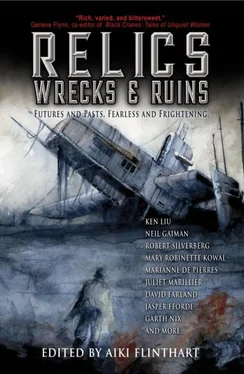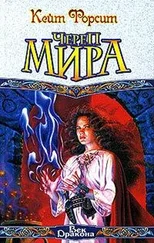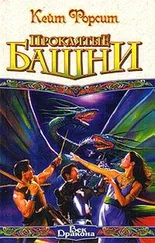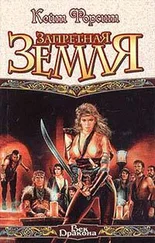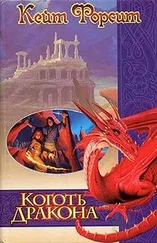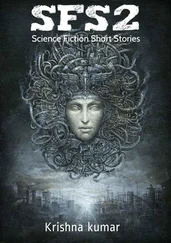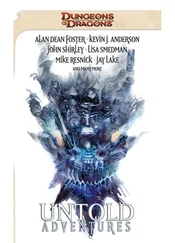The other… well. She’d stopped hoping a long time ago. They deserved to live. She deserved to live. Just not together.
She tightened her faded blue cotton robe and pants, hiding the carapace and extra appendages that made her neighbors uncomfortable. Turning, she nearly walked into one of them: Mrs. Kensington. The thin, tired woman held a filthy, squalling baby and Dot resisted the urge to take the child from her and cradle it.
“Please?” Mrs. Kensington said.
“I have nothing for you,” Dot said. “It hasn’t rained in days. I don’t have enough to process yet.”
Kensington glanced up as if hoping to see through the buildings piled on buildings, to see the clouds and open air that only the Cadre and other overcity residents owned. Then she dropped her gaze and turned away. The baby stared over her mother’s shoulder from sunken, shadowed eyes.
Dot watched them go.
Nearby, a kid crouched, hiding something. Dot smiled faintly. There was a gap in the plate directly above her pipe where a telecoms tower stabbed through. A small spot of sunlight fell on the acid-etched concrete and kids squabbled over the patch of brightness. The boy thrust a handheld charger into that tiny square of light, shifting carefully as the sun above moved, occasionally checking around to make sure nobody would push him off.
With no time to waste, Dot released a couple of appendages, hoisted herself on top of her three-meter-tall pipe and clambered up the tower. She moved quickly; there was no telling how long the sun would stay out and she was starving. She reached the fifteen-centimeter-wide gap and shifted her carapace to make her body the same width as her head. She squeezed through the hole and squinted against the sunshine.
She hesitated for a moment, allowing all her eyes to adjust, then swarmed up the pole to reach a height where she was invisible to the overcity dwellers. The pole’s top was a prickly cluster of antennae and boosters. There, she put herself into position, and pulled her robe off. She spread her arms wide, released all her appendages and threw her head back, feeling the warmth of the real sun on her shell. The ultraviolet-activated fins sprang out from her back and her whole body turned black as the transdermal solar cells went to work.
Nobody in the clean, bright overcity below was aware of her presence. They floated through their world of glass and steel, well fed and healthy, entertained and educated. Oblivious—or uncaring—of the undercity’s desperation.
She looked down. Pain filled her.
The cherry trees were flowering; pink petals floated on the breeze and carpeted the lush grass of an overcity park. A couple of children—she homed in to see more clearly, and they were a boy and girl—threw petals at each other, laughing.
Just like her girls had. Her girls…
Everything shifted and suddenly she wasn’t a copied mind—a series of numbers in a genetically engineered weapon-body—anymore.
She was Lena: warm and human and in a different time and place altogether.
Now… then… she sat on a red blanket on a grassy hillside, and the warm breeze whipped cherry blossoms into little tornadoes. Her two little girls were laughing and tossing petals into the air. Paul lounged next to her, smiling his big, open smile.
Marika ran to him and flopped to the grass, panting. She gasped a few times, and Paul touched her shoulder gently, as if to say: whatever you want to say, we can wait for it. When she had caught her breath, she scrambled to her feet, grabbed a double handful of the petals, and threw them over her parents. She jumped and clapped, squealing, then ran back to Cesta. The pair grabbed hands and spun each other, around and around, until they both fell to the grass.
Lena sensed Paul watching her and turned to see him smiling.
“I want this time to go on forever,” he said. “I don’t want you to go into the Facility.”
She pulled at the grass. “This is the last one. Then it’s over. The constructs will have everything.”
“Not everything, I hope.” He stroked the side of her face. “Not… you.”
“Only my battle knowledge. There’s a war coming. If sharing my knowledge with the constructs will help protect our people, then it’s worth a little discomfort.” She gazed out over the hillside. “You knew what you were getting into when you married a soldier.”
He gestured towards the girls, who’d picked themselves up and were slowly returning to the picnic blanket. “Did you know what you’d be getting into when we started this, though?”
Marika fell into Lena’s arms, smelling of sweet girl and sunshine.
Lena held her close and smiled back at Paul. “The greatest gift I could give anyone. And after this last session, we’ll be sure it’s protected.”
“It’s a huge burden for one woman to carry.”
“It’s not one woman, it’s an army, and they’re not me, not even copies of me, just shadows.”
Cesta sat next to Paul and he put his arm around her. “I’m glad we have the real thing then.”
Lena buried her face into Marika’s hair. “Forever.”
A cloud passed before the sun and Dot slipped free of the flashback with a shiver that rattled her carapace. She cursed the fact that she’d left the pills at the pipe, and instead recited the sutra to try and make the memories go away. They were becoming more intense, and more frequent. She shouldn’t even have them. They belonged to Lena, but haunted her anyway.
She examined the overcity again. Maybe the girls were down there. Marika would be finished university now, and Cesta wouldn’t be far behind. She wondered what paths the girls had chosen; neither of them had demonstrated their mother’s aptitude for battle. Marika had loudly expressed a desire to be a doctor when she’d been little, and Cesta had spent all her time drawing.
Was Marika healing the sick, and Cesta producing works of beauty to adorn the glossy walls of the overcity? Or maybe they had grown differently. Either way, they could be down there, strolling beneath the trees, enjoying the fresh air and sunshine, living their peaceful lives with their mother and father—their real mother, not Dot.
Would it be possible to find out? The idea of knowing where they were sent a small thrill through her.
She shook her head. No. She was a fool. She couldn’t give in to that hope again. It led to madness.
After all, she was one of the few constructs lucky enough to still be alive. That ought to be enough.
An ultrasonic shot whizzed past her head and she ducked instinctively. What the fuck? She clamped down on the urge to shift gears into combat mode, yanked the fins down and her robe back on.
Another blast hit the steel of the pole, chipping off bits of metal, and she didn’t hesitate. She slid back down the pole as fast as she could, using appendages to slow her fall. The friction took the skin off her hands and shredded the fabric of her pants until the insides of her thighs were raw as well.
Another shot hit the pole just above her, and she ducked. This was too unevenly spaced to be an automatic defense program for the tower. But they were obviously not trying to kill her. She stopped for a moment, half-sheltered by an overhanging building, and searched for a sniper or drone. The urge to shred her attacker with her claws was almost overpowering.
The next ultrasonic hit her square on the left shoulder. Her left hand numbed and lost grip. She began to slide again. Faster. Unable to hold on with her appendages without doing serious damage to the metal. She hit the plate below hard, wriggled through the hole in the plate, and paused to catch her breath.
Okay, maybe they were trying to kill her. She thanked the Buddha that the junction of the plate and the pole had an electrified fence around it, otherwise she could have hit an overcity resident when she fell. Damaging the overcity or hurting its residents would see her terminated or back in the Facility.
Читать дальше
